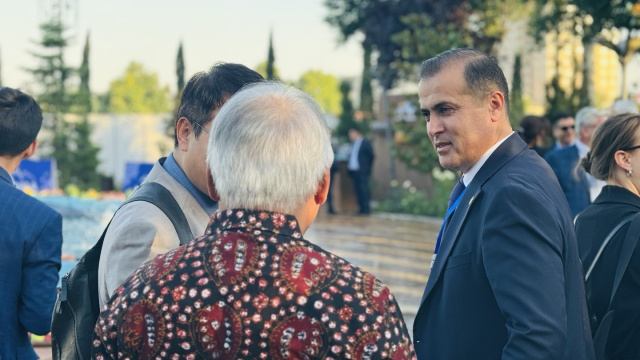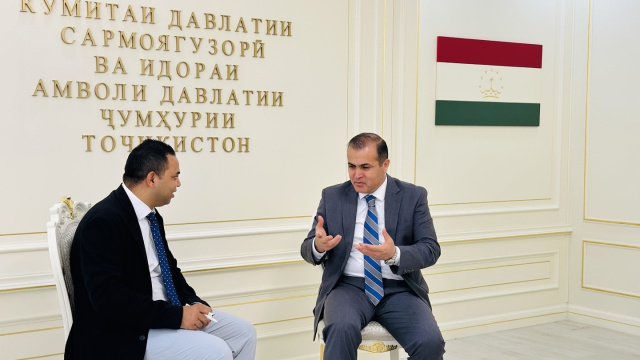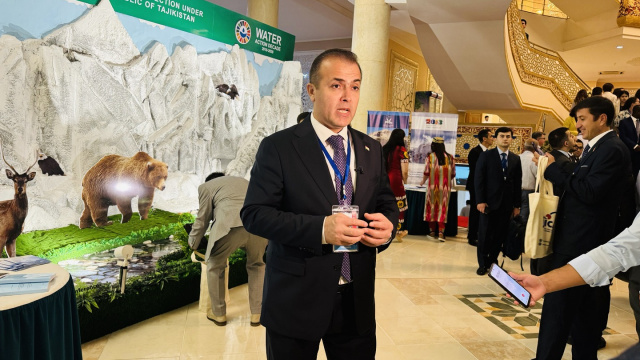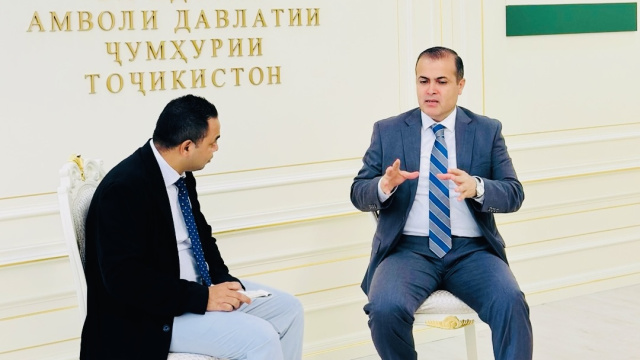Sulton Rahimzoda, Tajikistan's chairman of the State Committee on Investments and State Property Management, encouraged South Korean companies to invest in Tajikistan’s green energy and mining sectors in an interview with The Korea Herald.
Tajikistan intends to build a green economy by 2037 and accelerate industrialization for sustainable development and job opportunities.
Tajikistan offers opportunities to Korean companies to "green" their investments, according to Rahimzoda, based on the fact that approximately 98 percent of Tajikistan's electricity is generated through hydropower.
In terms of Tajikistan's mineral deposits, 88 percent are untapped, he said, pointing to the strategic need for green energy and mining investments.
“We have identified around 800 deposits, but only 100 are currently in use. This represents about 12 percent of our mining potential,” he said.
Tajikistan is rich in minerals essential for green transitions including lithium, antimony and silver, and the country ranks third in antimony production, after China and Russia, with plans to boost output.
“Korean companies are not yet engaged in this sector, which presents a great opportunity for them to explore,” Rahimzoda told The Korea Herald.
He applauded a recent collaboration with Global Solar Wafer, a Korean company, as a promising alignment of future energy and technology trends.
The project spearheaded is set to unfold in four stages, investing $2 billion and boosting local employment in Tajikistan, according to the Tajik Embassy in Seoul.
In a move to woo foreign investment to the country, Tajikistan's government has allocated 22 hectares in the Danghara Free Economic Zone for the project.
Construction of the first phase is slated to begin in July 2024, with completion targeted for March 2025, including the production of solar panel equipment with a capacity of 5,000 megawatts.
The establishment of this plant is seen as pivotal to Tajikistan's "green economy" strategy, as it is expected to bolster the country’s renewable energy infrastructure, striving to achieve up to 1,000 megawatts of green energy production by 2030.
“This partnership underscores the great opportunities for Korean companies to invest in Tajikistan’s economy and develop their investments,” he said.
Tajikistan's government gives over 200 different guarantees and incentives, more than 100 types of tax and customs exemptions, and a five-year tax exemption, for investments exceeding $5 million, according to Rahimzoda.
Highlighting the increasing cooperation between Korea and Central Asian countries, he, therefore, expressed the desire for a follow-up delegation from Korea and a potential visit by President Yoon Suk Yeol to Tajikistan.
“These five countries became independent and offer significant opportunities for investors, especially given the rapid economic and technological advancements in the region,” Rahimzoda said, referencing the post-Soviet independence of Central Asian nations such as Kazakhstan, Kyrgyzstan, Tajikistan, Turkmenistan and Uzbekistan.
He recalled the agreement between Tajikistan and Korea to facilitate economic cooperation through loans from the Korea Fund in 2023, along with the contract worth $2 billion signed with Global Solar Wafer to construct solar power infrastructure in Tajikistan in January as milestones of growing economic ties.
Rahimzoda assured the stability and security of investments in Tajikistan through an investment agreement ratified by the country's parliament.
He also emphasized that the country ranks among the safest globally, its young, educated population, and its strategic geographical location near major markets, including China and India.
“Tajikistan is renowned for mountaineering, ecological tourism and its rich cultural heritage. However, there is a significant gap in tourism infrastructure, such as hotels, which presents opportunities for Korean businesses,” Rahimzoda noted.
Concluding the interview, Rahimzoda acknowledged that Tajikistan might be lesser known to Korean nationals compared to other Central Asian countries, but stressed the country’s vast potential.
“We need to increase awareness about Tajikistan among Korean investors and promote the unique opportunities we offer,” he said.

 Русский
Русский



 4 432
4 432 